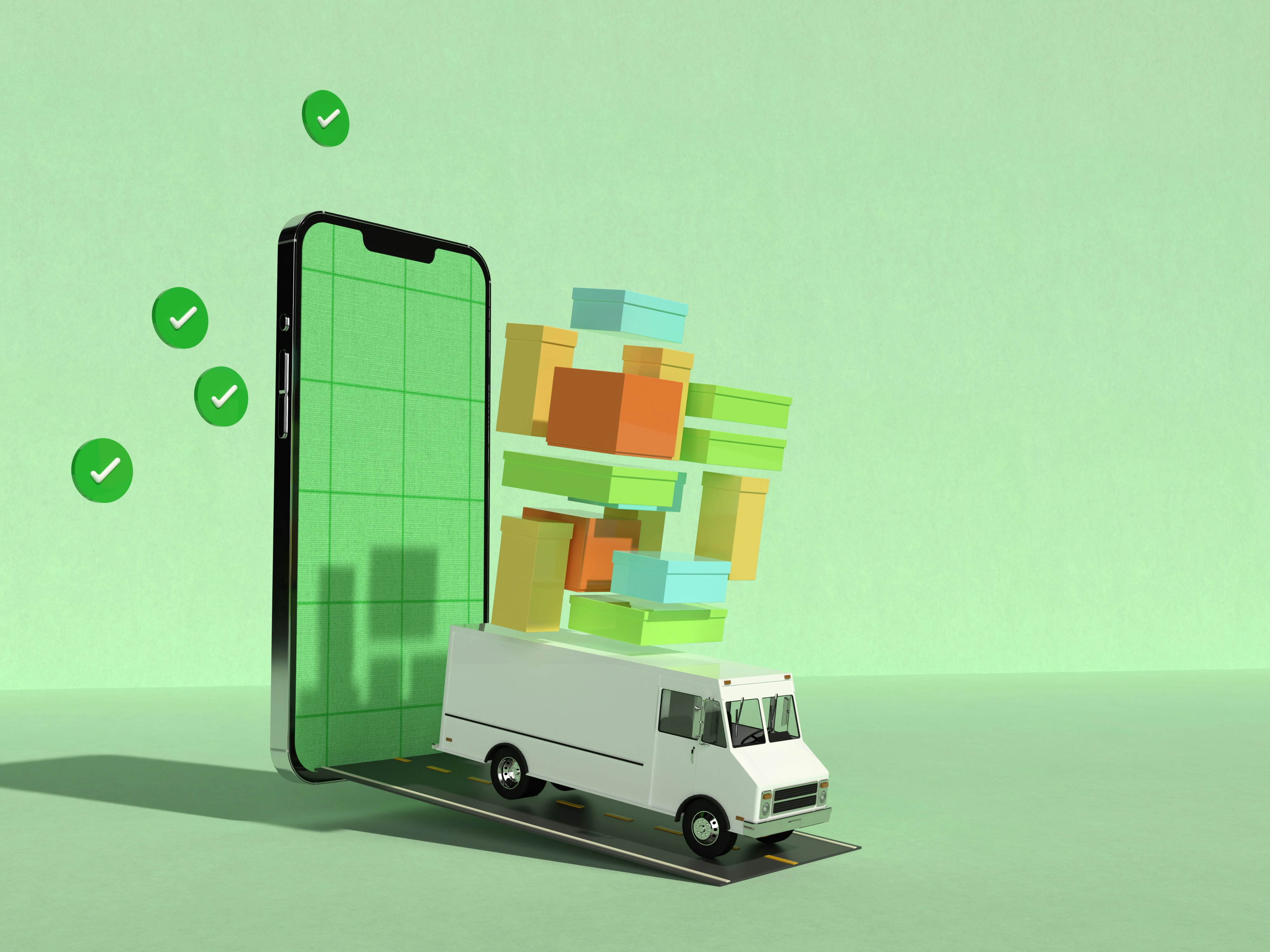 3PL vs 4PL: Understanding the Key Differences and Benefits
3PL vs 4PL: Understanding the Key Differences and Benefits
Since the rise of e-commerce, businesses have become incredibly diverse—varying in team size...
Read MoreInsights
In today's evolving business environment, the importance of third-party logistics (3PL) prov...

In today's evolving business environment, the importance of third-party logistics (3PL) providers in facilitating efficient eCommerce order fulfilment processes cannot be overstated. With businesses experiencing accelerated growth and evolving consumer needs over the past decade, the demand for streamlined logistics solutions has surged.
As businesses strive to meet the growing demands of customers and clients alike, selecting the right 3PL partner has become increasingly crucial. However, with a mass of logistics providers offering a range of services tailored to eCommerce, assessing and choosing the most suitable partner can be challenging.
Regularly reviewing your 3PL is essential, as customer satisfaction hinges on their performance. However, not all 3PL companies can adequately meet every business's diverse needs, facing challenges related to demand and scalability.
This guide will explore the vital aspects of evaluating your 3PL partner to ensure they align with your business objectives and contribute to your success in order fulfilment.
Partnering with logistics services can offer numerous advantages for businesses seeking to streamline operations, expand their reach, and complete successful eCommerce order fulfilment. Companies often turn to 3PL providers due to their expertise, resources, and ability to handle complex logistics tasks efficiently.
As of 2023, there were 14,051 third-party logistics businesses in the UK, and this number is only increasing with the rise in digital transformation, customer expectations, and competitor offerings. Your business needs differ from those of other businesses, so it’s essential to ensure that your 3PL meets these needs, as you are also answerable to your customers.
By outsourcing logistics functions to competent and successful 3PLs, businesses can typically benefit from cost savings, scalability, and access to specialised services, including:
Scalability: Third-party logistics (3PL) providers offer flexibility in space, labour, and transportation, enabling companies to adjust services according to their requirements.
Expansion: Utilising logistics service services aids in business expansion into new markets and regions, granting access to fresh supply chains and enhancing customer service.
Time and Cost Efficiency: Outsourcing logistics functions to 3PLs leads to time and cost savings for businesses, allowing them to focus on core competencies while benefiting from reduced shipping rates and faster delivery times.
eCommerce Order Fulfilment: In eCommerce, businesses rely on 3PLs for order fulfilment to streamline shipping processes and enhance customer satisfaction.
International Order Fulfilment Process: Many companies opt for 3PL partners for international order fulfilment, leveraging their global shipping and customs compliance expertise.
Compliance with Major Retailers: 3PLs help companies adhere to stringent vendor policies of major retailers like Amazon and Walmart by providing IT capabilities and specialised expertise.
Sales Support: Certain 3PLs engage in sales support activities, assisting businesses in managing multi-channel platforms, connecting to marketplaces, and supporting distinctive brand strategies.
Your third-party logistics company and you have the potential to provide customers with numerous advantageous qualities by ensuring efficient collaboration, assessing achievements, and dedicating to continual enhancement. While such services are typically outsourced, occasional instances arise where accessibility or effectiveness may fall short, emphasising the importance of regularly evaluating your logistics service provider.

The UK 3PL market is projected to recover and demonstrate a Compound Annual Growth Rate (CAGR) surpassing 6% until 2025, suggesting a favourable trend for the industry. However, 3PLs' success depends on the client and customer opinion.
We have established that regularly assessing the competency of your 3PL will ensure that your order fulfilment process is as successful as possible. But how do you conduct assessments when your logistics provider monitors your business activity instead of the other way around?
In the following section, we have assembled several strategies for evaluating your chosen provider's success and services sufficiently.
Your chosen third-party logistics provider should align with your business needs and objectives, especially in eCommerce order fulfilment. Their services are fundamental to their appeal and crucial to assessing their success as a partner. Evaluating their services or lack thereof is a significant aspect of determining their suitability.
For instance, if your customers have specific needs such as communication, a factor desired by over 85% of consumers, your third-party logistics service must offer services to meet this requirement.
To evaluate your provider effectively, it's essential to grasp the competitive environment and understand how their services stack up against industry standards. Keeping abreast of new offerings from competitors provides valuable insights into industry trends and advancements, enabling a full assessment of your current provider's services.
A successful third-party logistics service will typically ensure that they offer the following services to ensure the success of your order fulfilment process:
Technology Integration: Advanced technology solutions such as warehouse management systems (WMS), inventory tracking software, and order management systems (OMS) streamline operations and provide enhanced visibility into your supply chain.
Multi-Channel Fulfilment: The ability to fulfil orders from multiple sales channels, including online marketplaces and brick-and-mortar stores, helps you reach a broader customer base and increase sales opportunities.
Same-Day or Next-Day Delivery: Offering expedited shipping options meets customer demands for fast delivery, enhancing satisfaction and loyalty.
Data Analytics and Reporting: Providing insights and analytics on order performance, inventory trends, and customer behaviour informs business decisions and optimises operations for better efficiency and effectiveness.
But how do you evaluate these services? Are they successful, limited, or available? Let’s discuss this below:
Start by comparing the range of services offered by your 3PL to those of your competitors. Look into critical areas such as order processing, inventory management, transportation, and customer support. Determine if they provide value-added services like warehousing, packaging, or reverse logistics, which can significantly impact the efficiency of your operations.
When evaluating your 3PL, consider their services' comprehensiveness, alignment with your specific business requirements, and availability of value-added services. Assessing these factors ensures that your logistics service partnership meets your needs effectively and contributes to your business success.
Evaluate your 3PL's operational capabilities, including flexible cut-off times for order processing and their capacity to hold and manage inventory. Late cut-offs and inventory management issues can directly impact customer satisfaction and delivery timelines, making it essential to evaluate these aspects carefully.
Analyse key performance metrics such as order processing speed, inventory accuracy, and customer satisfaction ratings. Delays in order processing and inventory inaccuracies can lead to customer dissatisfaction and impact overall operational efficiency, emphasising the importance of tracking these metrics in eCommerce order fulfilment.
Identify areas for improvement through the evaluation process and collaborate with your 3PL to develop actionable plans to address them. Maintaining clear communication and transparency throughout the process fosters trust and strengthens the partnership, leading to continuous improvement and business success.
By focusing on the success of crucial services alongside your evaluation of the 3PL's core offerings, you can effectively assess their ability to meet your business needs and drive continuous improvement in your logistics operations. This comprehensive approach ensures that your 3PL partnership remains competitive and aligned with your long-term business objectives.
Assessing the effectiveness of a third-party logistics service in managing eCommerce order fulfilment is like examining a roadmap with specific performance metrics that directly influence customer satisfaction and overall business success.
These metrics offer valuable insights into the efficiency and effectiveness of logistics services. For instance, research suggests that 66% of customers expect companies to understand their needs and are willing to pay more for exceptional service. Conversely, dissatisfied customers will likely share their negative experiences, potentially harming the company's reputation.
To evaluate the performance of a third-party logistics service, businesses should focus on critical indicators such as delivery accuracy, order processing speed, and inventory management efficiency. Analysing these metrics enables companies to identify areas for improvement and ensure that their logistics partner aligns with their unique business requirements and objectives.
Monitoring customer satisfaction ratings and feedback is also crucial. Understanding customer preferences and promptly addressing issues can significantly enhance customer experience and promote loyalty.
By prioritising these metrics and addressing any areas for improvement, businesses can ensure that their logistics partner delivers exceptional service that meets both their needs and those of their customers.
Here's how to specifically evaluate these metrics:
Define Evaluation Criteria: Start by outlining specific evaluation criteria, such as delivery accuracy, the order fulfilment process, speed, inventory management efficiency, and customer satisfaction.
Gather Data and Feedback: Collect relevant data on key performance indicators (KPIs) and seek customer feedback regarding their experience with the 3PL services. This qualitative and quantitative information provides valuable insights into your 3PL's performance.
Assess Technological Capabilities: Evaluate your 3PL's technology infrastructure for tracking, reporting, and optimising operations. A robust technological setup enables real-time visibility into inventory levels and streamlined order processing.
Review Service Level Agreements (SLAs): Regularly review SLAs with your 3PL provider to ensure alignment with your business objectives. Monitoring SLAs helps maintain accountability and encourages a collaborative partnership.
Analyse Performance Metrics: Dive deep into performance metrics such as order processing speed, cost-per-unit shipping, returns, and inventory accuracy. Utilise analytics tools to track these metrics and identify areas for improvement.
Continuous Improvement: Work with your 3PL to develop a plan to address areas for improvement. This proactive approach demonstrates a commitment to constant improvement and strengthens the partnership.
By incorporating these points into your evaluation process, you can better assess your 3PL's performance and analyse if your customers are satisfied with the level of eCommerce order fulfilment from your 3PL.
Have you ever wondered how your third-party logistics (3PL) provider handles the pressure? With nearly all logistics companies feeling the heat to speed up services, ensuring your 3PL can keep pace is vital. When orders flood during peak periods like Black Friday and Christmas, can your 3PL seamlessly scale operations up or down? Reliable teammates know when to act and when to scale down, and so should your third-party logistics service.
Consider how your third-party logistics (3PL) provider handles pressure. With the logistics industry experiencing increased demand for faster services, ensuring your 3PL can keep up is crucial. When orders flood during peak periods like Black Friday and Christmas, does your 3PL seamlessly adjust operations?
Evaluating their ability to adapt to changing demands is essential, like having a reliable teammate who knows when to step up and take control of the eCommerce order fulfilment process.
Let’s discuss how you can understand the success of your 3PL’s scalability resources:
Evaluate the 3PL's ability to handle increased demand during peak periods like Black Friday and Christmas, examining past performance, including delivery and sending times.
Review how effectively the 3PL scales operations to meet fluctuating order volumes, such as temporarily increasing staffing or warehouse space and ensuring timely communication with clients regarding delays or changes.
Look at specific examples of how the 3PL has adapted to unexpected spikes in demand, such as implementing additional shifts or utilising overflow storage facilities, and assess their impact on customer satisfaction.
Evaluate the 3PL's responsiveness to changing customer needs and market trends, such as introducing new shipping options or expanding service offerings during peak periods, and measure customer satisfaction through feedback and reviews.
Discuss with the 3PL their plans for future scalability, including investments in technology or infrastructure to support continued growth, and how they intend to maintain high levels of customer satisfaction during expansion.
While numbers provide valuable insights, customer feedback tells a more comprehensive story. Are your customers satisfied with delivery times, order accuracy, and overall service? Understanding their experiences is equivalent to having insider knowledge straight from the source. By leveraging data analytics tools, you can delve deeper into metrics like order fulfilment rates and inventory turnover.
Audits play a crucial role in ensuring the effectiveness and reliability of your 3PL provider. They provide insights into areas of improvement, identify potential risks, and help maintain compliance with industry standards. You may typically think that audits are only performed by the 3PL itself. Still, by taking an active role in the structure and activities of the organisation that holds your success in its hands, you are helping to build trust and confidence in your 3PL's ability to meet your eCommerce order fulfilment needs.
Regular audits should be conducted to assess various aspects of your 3PL's performance. These audits can include site visits, surveys, interviews with warehouse personnel, and reviews of data security measures. It's essential to evaluate their risk management, cybersecurity measures, and adherence to service level agreements to maintain a high level of service quality.
You can conduct audits effectively by:
Scheduling regular audits at predetermined intervals to ensure consistent monitoring.
Utilising a combination of site visits, surveys, interviews, and data analysis methods.
Collaborating closely with the 3PL to address identified issues and implement necessary improvements.
To ensure logistics services meet industry benchmarks and remain competitive, qualitative assessments of communication style, responsiveness, and commitment to improvement should be made.

Selecting the right third-party logistics (3PL) partner is essential for businesses to ensure efficient eCommerce order fulfilment services and meet customers' expectations. Continuously evaluating and adapting logistics strategies is crucial for maintaining competitiveness in today's dynamic market.
Businesses can effectively overcome challenges and seize growth opportunities by prioritising adaptability, reliability, and responsiveness in their 3PL partnerships. Establishing strong collaborative relationships based on trust and shared objectives forms a solid foundation for success in the fast-paced logistics industry.
Ultimately, a commitment to ongoing improvement, innovation, and customer satisfaction is vital for businesses to thrive in the ever-evolving eCommerce space and supply chain management. By embracing change and focusing on delivering exceptional order fulfilment services, companies can drive sustainable growth and remain competitive in their respective markets.
No matter how your customer demands alter, we are ready to support your growth. As experts in eCommerce order fulfilment, we’re committed to your success as a reputable 3PL service. With tailored solutions for various businesses, we aim to ensure you meet customer expectations and demand. From simplifying inventory management systems to assisting with delivery provider selection, we can help you.
Contact us today for more information on the integration process and how we can support your business.